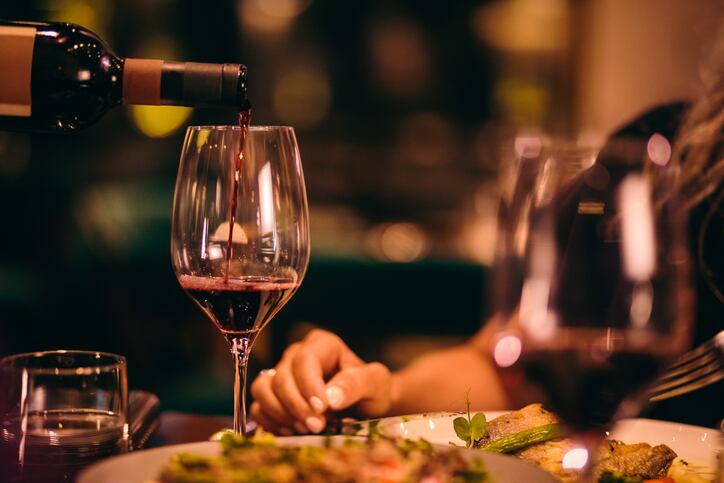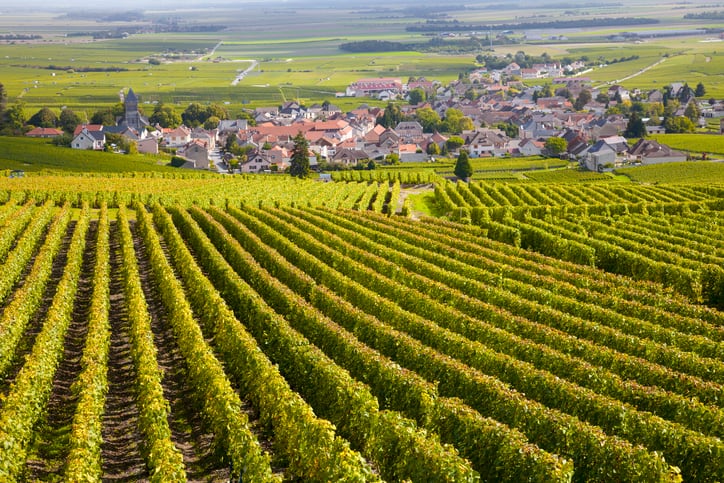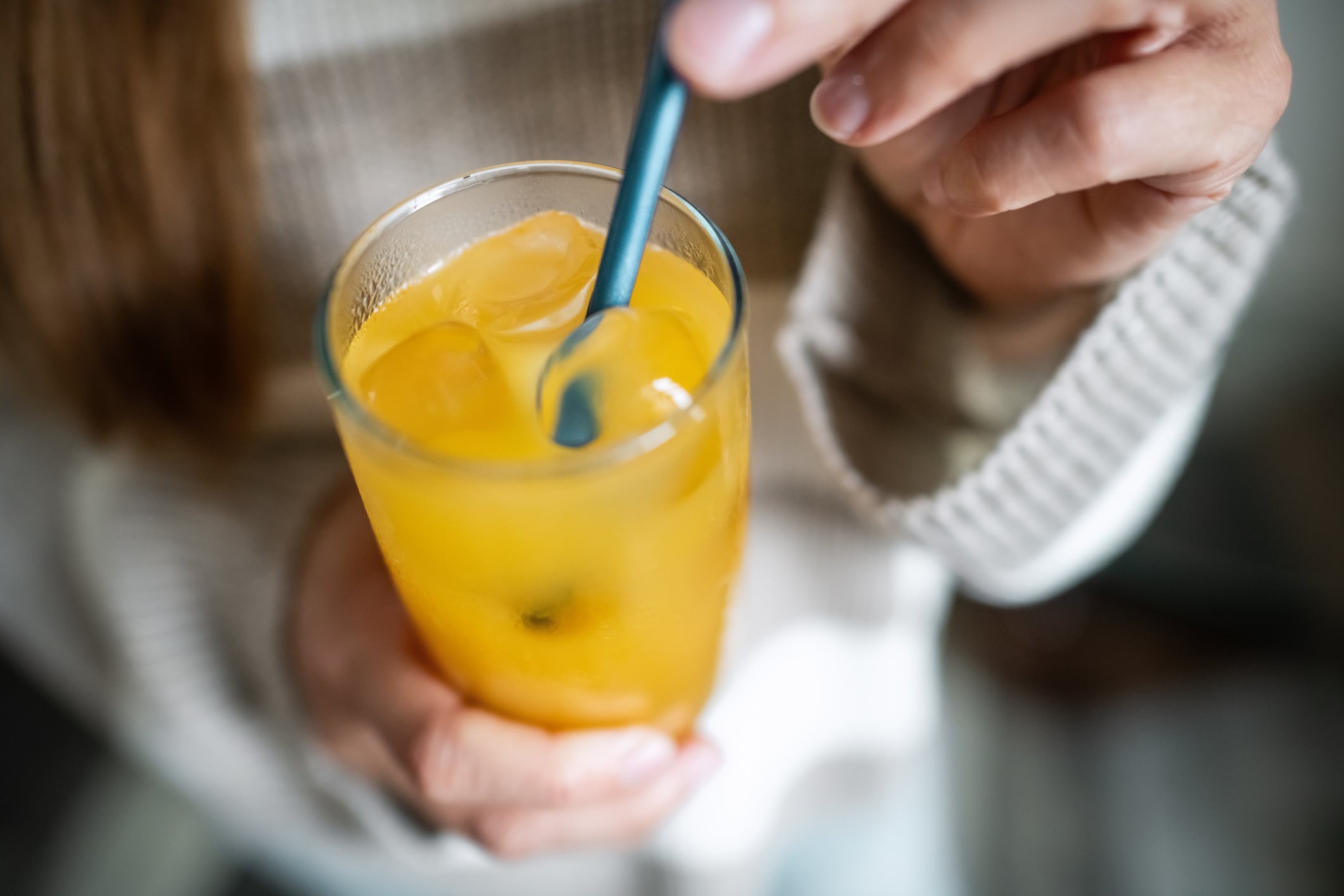It makes for a great headline: the French are turning to alcohol-free wine. It’s one that’s captured the attention of media outlets worldwide, ranging from NPR to the BBC.
But is France really turning its back on tradition in favor of alcohol-free? Answering that question requires taking a step back and looking at France’s wine industry and relationship with alcohol as a whole.
‘Le defi de Janvier’
We know that consumers are drinking less alcohol around the world. That drive towards moderation is also being seen in France.
Dry January in France was officially launched in 2020. But 2025 has been the year that Dry January (or rather, ‘le defi de Janvier’) has really hit the mainstream.
Articles abound in the mainstream media. Doctors now put posters up in their waiting rooms. Many more people now understand the concept of Dry January (but not all: as BeverageDaily struggled to explain the concept to a French woman, she finally exclaimed – aghast – ‘What, you can’t even drink beer?!’).
More than 4.5 million French people took part in Dry January in 2024, according to figures used by Le Monde, the NIH in the US and Associations Addictions France.
That’s around 6% of the population (compared to around 16% in the UK, where the movement originated and is much more established).
How many people do Dry January?
Figuring out how many people take part in Dry January is always a challenge: because there’s often a gap between intent and actual participation and what respondants consider 'counts' as Dry January (some are happy to accept the odd dalliance with a drink as par for the course, others are not).
Other surveys are much more bullish about consumers’ enthusiasm for Dry January: one puts this figure at 27% and another says 60% of French people ‘wanted to try it in 2024’ (a suspiciously high figure, as it would put participation far higher than the UK).
The reasons given for participation are akin to that in other countries: people want to moderate after the festive season, they like a personal challenge, they want to lose weight, or they simply see the benefits of moderation.
The past couple of years have seen many alcohol-free brands, retailers, events and initiatives spring onto the scene. The message is clear: alcohol-free alternatives have arrived in France.
The biggest sign of change arguably comes from last year’s announcement from LVMH – the luxury giant that has suffered from the industry-wide slide in Champagne sales – that it had invested in sparkling alcohol-free wine French Bloom.
“The impact of Dry January on the consumption of alcohol is not limited to a simple annual challenge, but reflects the evolution in the mentality of wellbeing and moderation,” says Gaëlle le Floch, director of Insight Kantar Worldpanel in France.
“The willingness to reduce alcohol consumption – particularly after the excess of the festive season – should continue to gather pace, offering new perspectives for the industry of dealcoholized drinks.”
Gen Z
“Far from the cliches of pregnant French women, the trend around drinks without alcohol are explained by the quest for moderation,” says Valérie De Sutter, founder and CEO of alcohol-free spirit JNPR.
“We see among our clients – most of who describe themselves as ‘epicuriens’ or ‘bon-vivants’, that the trend to reduce alcohol touches all age brackets, but particularly Generation Z. The proportion of young people 17 years old who have never touched a drop of alcohol has risen over the last 20 years: from 4.4% in 2002 to 19.4% in 2022.”
That – follows the logic – creates an opportunity to marry the French love of wine and trend of moderation into a sure winner: alcohol-free wine.
On a precipice: The French wine industry
Wine consumption in France has fallen dramatically: down 70% since the 1960s.
Consumers are moving away from traditional wine and choosing trendier drinks such as craft beer and cocktails. Wine is not capturing the hearts and souls of today’s younger drinkers in the same way it has in generations past.
Cost-of-living challenges have been particularly acute in France, and buyers are reducing their spending on non-essential goods. And younger consumers, as we have seen, are simply moving away from alcohol altogether.
The wine industry’s woes are a serious problem. Winemaking is a way of life across France. The French wine sector supports around 254,000 full time jobs and an additional 186,000 jobs by ripple effects, totalling around 440,000 jobs.
And winemakers are facing increasingly insurmountable challenges. Being a winemaker just gets harder and harder: rising energy prices, supply chain challenges, rising export costs abroad and a lack of demand.
That’s led to an overproduction of wine. Winemakers who have spent years honing their craft have now found the government funding the destruction of surplus wine production in an attempt to shore up prices.
Many wineries are family affairs: and it’s no surprise that the next generation of would-be winemakers are increasingly reluctant to take on the family business.
The hope, then, is that alcohol-free wine can offer the industry a welcome point of innovation and diversification.
French government declines to back Dry January
Last year, President Macron made headlines when he declined to officially back the Dry January campaign. Of course, much of that is about supporting the wine industry. But remember that France is a country where people are just as passionate about their rights and freedoms as their wine. As the French government deliberated over whether to back Dry January last year, Marc Fesneau, the agriculture minister, summed up a collective French feeling : “I don’t think the French need to be given lessons by anyone. People are fed up with being told what to eat, what to drink, how to travel. There’s a way of life that also deserves respect.”
Alcohol-free wine: a winner for the industry?
While there are now a growing number of voices championing the alcohol-free movement in France, opinions in the wine industry vary.
“I’ve talked to many French wine industry members and dealcoholized wine is a touchy subject,” said Louise Hurren, a wine industry communications consultant who has been following the category since judging its first appearance at the Concours Mondial de Bruxelles in 2020.
“The reasons for this are possibly cultural (France’s long history as a renowned wine producing country), coupled with the fact that French winegrowers are going through troubled times (wine consumption has declined steadily for 60 years, and some 27,500 hectares of vines are scheduled to be uprooted to combat the oversupply crisis).
“Thus, dealcoholized wine is seen by some in the industry as a consumer demand to be met (and thus an opportunity to be embraced), and by others as heresy. Interestingly, alcohol-free spirits seem less contentious.”
“France is protective of its language, and a pedant would point out that alcohol-free wine is a contradiction in terms: by definition, wine has to contain a minimum of 8.5% alcohol.”
Louise Hurren
Terroir and taste
French winemakers champion their centuries long savoir-faire in winemaking. If anyone can make a good alcohol-free wine, then it’s the French.
But the flip side is that the French consumer is the most discerning – and unforgiving - when it comes to bad wine.
In alcohol-free product development, wine is the category with the biggest technical challenges. Traditional wine gets much of its full-bodied, rich sensation from alcohol content: while dealcoholization methods often create products that are too sweet.
And not all alcohol-free wines on the market meet taste expectations.
Alcohol-free wines: Good or bad?
Last month, French journalist Martin Lemaire took aim at this problem in national publication Le Figaro, expressing his dissatisfaction with 'disappointing dealcoholized ‘wines’’.
‘There remains a problem: dealcoholized wine struggles to convince taste-wise," he said. “In the same way that a veggie burger flavored with a meaty taste will never provide a sensation equivalent to that of a rare steak, a wine that has undergone the agonies of evaporation – one of the processes in force to deprive it of ethanol – does not provide the fullness, at least, not yet, of a Pauillac."
But across the alcohol-free industry, brands have always had to make a decision if their aim is to replicate the alcoholic alternative as closely as possible - or to offer a different experience. Gueule de Joie held its first alcohol-free wine fair last year - and its focus was on the latter.
"Alcohol-free wine is growing in popularity, responding to a growing demand for healthier – or simply different – alternatives," noted the Nantes-based alcohol-free retailer, which has a bricks and mortar store and also sells online.
"However, it is crucial to understand that alcohol-free wine does not replicate exactly the experience of traditional wine, but offers a new perspective. Far from being a simple substitute, it proposes a unique tasting experience.
"Tasting alcohol-free wine lets you rediscover the grape varieties and their characters. But the absence of alcohol modifies the profile, offering more fruity notes, lighter flavors and a different mouth texture. This lets you explore aromas and nuances often masked by acohol, offering a new way to appreciate the richness of the French terroir."
The other problem with that is the chemicals and additives that are commonly added to alcohol-free wines (these are used to re-create the legs and replicate the effects of barrel-aging).
France is one of the top consumers of organic produce, with a key sense of pride in sourcing locally and from farms. This organic trend has been particularly taken up in wine: in fact, one in ten wines in France is now organic, making up 21% of vineyard area.
But organic alcohol-free wine is a big ask that does not fit in with current EU legislation.
In Britain (and indeed other alcohol-free markets) alcohol-free products are still often seen as a joke. In France, that reaction can be much stronger.
Frankenstein wines?
Winemaker Armand Heitz – of Château Armand Heitz, a domain in the French wine heartland of Beaune - fears that alcohol-free wines could threaten wine as the French know and love it.
He denounces the industrial processes necessary for producing alcohol-free wine - citing their environmental impact and products 'devoid' of interest.
For the winemaker, these techniques respect neither nature nor the initial product, he says: "The grape ferments naturally to produce wine. Extracting alcohol means denying the natural process and creating something false. Ever heard of Frankenstein?"
Meanwhile, the price of alcohol-free products is a challenge. That’s a problem for the category worldwide: but in France consumers are used to enjoying high quality wine at low prices.
Sparkling alcohol-free wine French Bloom (backed by LVMH) retails at nearly €30 a bottle. The French can buy a bottle of Champagne for less than that.
Moving forward
Despite the challenges, the alcohol-free wine movement is emerging and growing.
The alcohol-free wine category in France saw volumes up 4% between 2018-2023 (albeit from an extremely small base), accelerating another 4% from 2022-2023. Growth is now forecast at a more moderate 2% ABV from 2023-2028.
That is growth – excellent news compared to the severe declines in the overall wine industry (it’s not quite as strong, however, as the 7% growth posted globally for the category in 2023).
Walk into a standard bar or restaurant in France and – if you’re lucky – you’ll find one alcohol-free beer at the end of the drinks list. The visibility of alcohol-free wine remains extremely low.
But alcohol-free wine is in a unique position. If the category can play its cards right, it still has the potential to become a success.
First of all, we have to consider that France has a different approach and culture towards alcohol – which works both for and against alcohol-free wines.
Alcohol (whether wine or otherwise) is welcomed and enjoyed by much of the population but – in stark difference to many countries – it’s a product to be savored.
The French culture, for example, promotes drinking a good quality bottle of wine with a meal, or an aperitif sipped on a terrace (contrast that, for example, to the image of binge-drinking Brits over the channel who down shots simply to get drunk).

We’re talking stereotypes here, of course (indeed, the Brits are now spearheading the sober curious movement) but it does illustrate how alcohol is accepted as part of the culture.
And it does shed light on how France needs to approach alcohol-free wine.
“France had a late awakening… the international market has adopted this type of product [alcohol-free drinks] for a while,” said Mathilde Boulachin, wine pioneer at Pierre Chavin, a winery in the south of France that produces alcohol-free version alongside alcoholic wines, speaking at a panel on alcohol-free wine at trade fair Millesime Bio last month.
She points out that the best chance for alcohol-free wine is in countries where there’s already production and consumption of wine and a need for a natural extension into a sophisticated alcohol-free product (good news for the industry in France).
But what’s key to understand about France, says Boulachin, is that alcohol-free wine is not about abandoning wine and its traditions. It’s about fitting that into the moderation trend.
“Alcohol-free wine drinkers are more likely to be women, under 35 years old, dynamic, and – very important - they are flexible drinkers," she said.
“Imagine them in a restaurant at lunchtime – they don’t want to drink alcohol – the evening, in contrast, they’ll turn to wine, because they’re knowledgeable about it and tuned into premium and quality products.
“We’re not in a situation of wine vs alcohol-free wine. It’s really a natural accompaniment, it’s about moderating voluntarily.”
What alcohol-free wine needs, she explains, is to tap into a ‘modern approach’ of Epicureanism - rather than lifestyles focused on abstinence. As we’ve already seen, the French are very against being told what they can and can’t do. Alcohol-free wine brands need to be clear they’re not about abstinence, but about offering another choice.
In the UK and US, retail has proved to be the right way forward for alcohol-free. That’s unusual, because normally new drinks make their way into the mainstream via bars and bartenders.
And that could be the way in France. Small supermarkets, of course, don’t stock a great deal of alcohol-free wine: but the mega ‘hypermarches’ are increasingly doing so. Carrefour – the biggest chain in France – offers a selection of 27 products without alcohol online.
The next step is to see alcohol-free wines become more common and accepted in bars and restaurants. And innovators are trying. Take for example Tempera: an alcohol-free wine alternative (not a wine per se, as it does not come from a grape base) which was created as a gastronomic proposition by chef Mauro Colagreco.
“To my mind, the biggest challenge for NOLO wine in France is distribution, and a conservative mindset from some within the industry,” said Louise Hurren.
“The guardians of the on- and off-trade gates may be reluctant to list these products, but sober-curious consumers can order them online from sites like Gueule de Joie. The horse is already out of the stable, as it were.”
Follow the trends
Alcohol-free was once widely mocked in the UK, a country known for its drinking culture. Look at that market now: where alcohol-free is booming. The same can be said for the US, with new launches abounding onto shelves.
It’s fair to say that - with the country’s passionate wine culture and exacting standards in quality - France’s alcohol-free wine industry faces a tougher journey to success. But that could prove to be a good thing. French winemakers, after all, have an unrivaled savoir-faire in wine: if they’re up to the challenge, they’re the ones who can beat the technical challenges.
If alcohol-free wine makers can play their cards right, there’s a wealth of opportunity. Make the wrong move, however, and the neck of those alcohol-free wine bottles will be on the guillotine.
And while France’s alcohol-free industry may meet some big challenges, they’re not always so different from elsewhere. Alcohol-free products everywhere were been mocked in their early years before making it into the mainstream (think alcohol-free beer in the UK and US in the 90s). Alcohol-free drinks have suffered setbacks with taste and quality before finding the winning formula. Brands worldwide have realized that positioning alcohol-free drinks as a positive choice is much more likely to reap rewards than being a product of abstinence.
The US and UK have already taught us that product quality is improving and people are becoming more and more receptive to the category. It might take time, but the potential is there.


